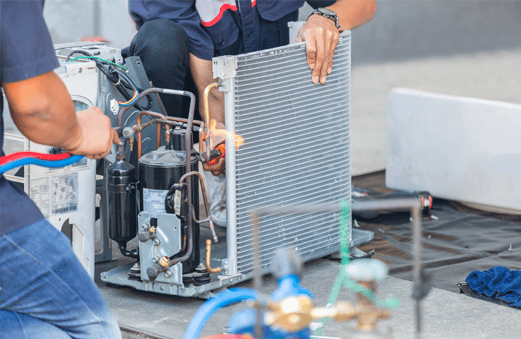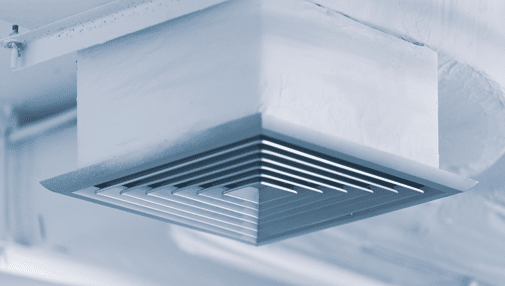If you’ve ever left sweaty socks or other clothes in the laundry for too long, you’ve probably been surprised at just how quickly they take on a strong scent of mildew. Given that moisture and bacteria are already in place for the mold spores to begin to grow, it’s no surprise that your socks end up this way.What may surprise you, however, is that you can experience this smell all throughout your Florida home, not just in your laundry basket. Keep reading to learn more about this condition and what you can do to make it better.
What Is Dirty Sock Syndrome?
The phenomenon in which your home takes on a mildew smell is known as Dirty Sock Syndrome. This condition is so named because of the smell’s similarity to dirty, sweaty socks that have been lying around for a while.
Similar to dirty socks, this smell occurs when moisture collects on surfaces and is left for a long period of time. The longer the moisture sits, the more mildew that grows, resulting in the release of gases by the mildew that creates that awful smell.
Why is Dirty Sock Syndrome Causing My AC to Smell Musty?
It’s one thing to know why the air in your home smells like dirty gym socks. It’s another matter, though, to understand why the mildew is growing in the first place. Dirty Sock Syndrome is caused when moisture is trapped in your HVAC system and can’t evaporate as rapidly as it’s supposed to. This condition is typically associated with the summer season, as that’s when there’s humidity and air conditioner condensate to fuel mildew growth.
There are two areas within HVAC systems where we typically see mildew growth. Mildew is often found in the evaporator coil, and in the ductwork.
Your evaporator coil is an area in your air conditioner in which the refrigerant line is zig-zagged back and forth to create a tight coil. As the refrigerant has to pass through the entire coil before it can continue on, the cold refrigerant remains in this space for quite some time.When the hot and humid air from your house is blown over the evaporator coil by your blower motor, a couple of things happen. First, thermodynamics come into play as heat is passed from an area of higher concentration, that is, the air from your house, to an area of lower concentration, which is refrigerant in the evaporator coil. This is what causes the temperature of the air to drop.

Additionally, because the evaporator coil is made of metal, usually copper, the humidity in the passing air condenses on the coil, in exactly the same way that condensation forms on cold glass. Since less-humid air feels cooler, this is an important step in keeping you comfortable.
Most of the time, this process runs quite smoothly. The problem occurs when there’s dust on the evaporator coil. If excess dust builds up on the coil, the condensate will stick to the coil instead of falling off the coil and into the drain pan. This phenomenon is similar to what happens if you have a napkin wrapped around the aforementioned cold glass.
Since moisture is trapped in the dust around the coil, it can’t evaporate properly, which can lead to the growth of mildew. Especially when you consider that mildew can feed on the organic matter in the dust, it’s easy to see why Dirty Sock Syndrome happens when you have a dirty evaporator coil.
Your ductwork, as you may know, is a system of passageways that sends conditioned air where it’s needed. As with the evaporator coils, most of the time this process happens smoothly.Problems can occur, though, if your ductwork was poorly designed. If there are ductwork runs that are too long, if the vents are too far away from the source of air, or if there are sharp bends in the ductwork, your system may not have enough capacity to maintain the speed of the air all the way to the vents.

If the air slows down, any dust that’s suspended in the air will slow down as well. Then, if your ducts are at all moist or if the air meets a sharp bend, the dust will be deposited, creating a prime breeding ground for mildew.
If either of these conditions persists unchecked, you could end up needing McGowan’s Heating & Air Conditioning to help address your Dirty Sock Syndrome.
Is AC Dirty Sock Syndrome Dangerous?
As unpleasant as Dirty Sock Syndrome can be, the good news is that it’s generally not harmful to your health. Those with sensitive allergies may experience sneezing, itchy eyes, and other allergy symptoms, but there are no known long-term health effects from this issue.
Even though the condition isn’t dangerous, it doesn’t make it any more bearable when you’re dealing with it in your home. If the smell is strong enough, it can cause you to lose focus on other things since your brain is focused on the foul smell. Plus, because this condition indicates that something is amiss with your HVAC system, it’s a good idea to have it addressed by a professional company like McGowan’s Heating & Air Conditioning.
What Can I Do to Keep My AC from Smelling Bad?
The good news is that there are steps you can take as a homeowner to help prevent or at least minimize Dirty Sock Syndrome.
The first and most important thing you can do is also one of the bedrocks of HVAC maintenance in general: maintain a clean air filter. Your air filter is the first line of defense against dust that can wreak havoc on your system and cause Dirty Sock Syndrome.

Most importantly, you want to be sure that you have a filter in place. If your filter has become clogged with dust, it may be tempting to run your system without a filter until you can get a replacement. However, this can cause a massive amount of dust to be circulated through your HVAC system, causing problems that stretch far beyond a simple foul smell.Just as important as verifying the presence of a filter is ensuring that it’s changed regularly. A clean filter captures more dust and allows your system to push more air, which helps to prevent dust from collecting in trouble spots.
If dust has already made it into your system, it’s a good idea to let the professionals at McGowan’s Heating & Air Conditioning give it a thorough cleaning. By removing the dust from the evaporator coil and ductwork, you can stop Dirty Sock Syndrome before it starts. Removing excess dust will also help your system to run more efficiently and ensure it enjoys a long life.
Get HVAC Help from McGowan’s Heating & Air Conditioning
At McGowan’s Heating & Air Conditioning in Jacksonville, Florida, we’ll make it our commitment to ensure you’re fully satisfied. Our president is a Navy veteran, and you can be sure that the same determination he applied to serving our country will be applied to serving you. That’s why we offer a variety of services to assist you with all of your HVAC needs.
If you’re in need of furnace or air conditioner repair, maintenance, or installation, then you know who to rely on. We also offer duct cleaning, attic insulation installation, commercial service, and much more. We’d love for you to put our commitment to service, reflected in our A+ Better Business Bureau rating, to the test. Give us a call today and kick those awful smells to the curb once and for all.Contact Us


